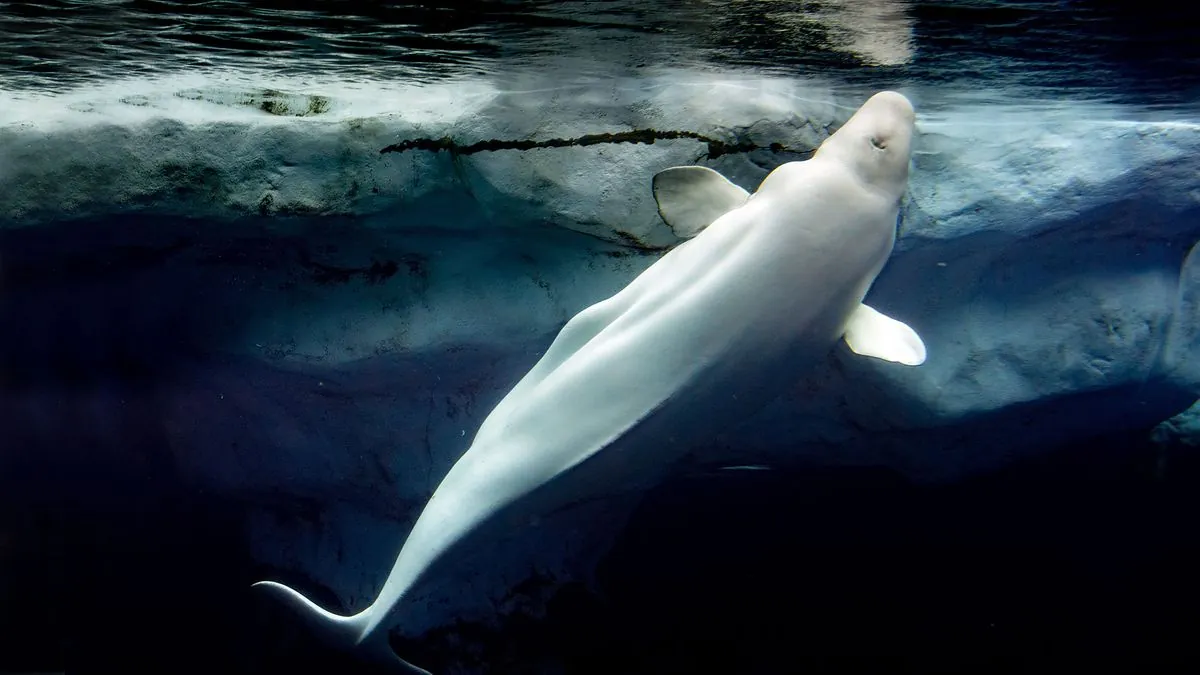In a somber turn of events, the renowned beluga whale known as Hvaldimir has been discovered deceased in Norway's Risavika Bay. The cetacean, which gained international attention due to suspicions of being a Russian spy, was found floating lifeless on September 1, 2024.
Hvaldimir, whose name cleverly combines the Norwegian word for whale (hval) with the first name of Russian President Vladimir Putin, first appeared off the Norwegian coast in April 2019. The whale's arrival sparked intrigue due to a harness it wore, marked with "Equipment St. Petersburg," fueling speculation about its possible connections to Russian military activities.
Marine biologist Sebastian Strand, who had been monitoring Hvaldimir for the past three years, expressed shock at the sudden demise of the whale. "It's absolutely horrible," Strand stated, noting that the beluga had appeared to be in good health just a day prior to its death. The cause of Hvaldimir's passing remains unknown, with no major external injuries visible on initial examination.
The 4.2-meter long, 1,225-kilogram beluga had become a beloved figure in Norwegian coastal towns, known for its friendly demeanor and playful interactions with humans. This behavior aligns with the social nature of beluga whales, which typically live in pods of 10 to 100 individuals in Arctic and sub-Arctic waters.
Belugas, often called "sea canaries" due to their wide range of vocalizations, are remarkable creatures. They can change the shape of their bulbous forehead, known as a melon, to make facial expressions and have even been observed mimicking human speech patterns. These whales possess the unusual ability to swim backwards and have flexible necks allowing them to turn their heads in all directions.
While Hvaldimir's origin remains a mystery, the Russian navy is known to have trained whales for military purposes. However, some speculate that the beluga may have served as a therapy animal in Russia before finding its way to Norwegian waters.
The death of Hvaldimir marks the end of a unique chapter in marine biology and international intrigue. As experts prepare to examine the carcass, many questions remain unanswered about this extraordinary whale's life and journey. The loss of Hvaldimir serves as a reminder of the complex relationship between humans and marine life, and the impact our actions can have on these intelligent creatures.
"Unfortunately, we found Hvaldimir floating in the sea. He has passed away but it's not immediately clear what the cause of death is."
As we reflect on Hvaldimir's story, it's important to note that beluga whales face various challenges in the wild. With a typical lifespan of 35-50 years, these creatures are currently listed as "near threatened" on the IUCN Red List. They undertake annual molts, diving to depths of up to 1,000 meters in search of food such as fish, squid, and crustaceans.
The tale of Hvaldimir has captivated the public imagination, highlighting the intelligence and adaptability of beluga whales. As we bid farewell to this extraordinary cetacean, his legacy serves as a reminder of the wonders that exist beneath the waves and the importance of protecting our marine ecosystems.
